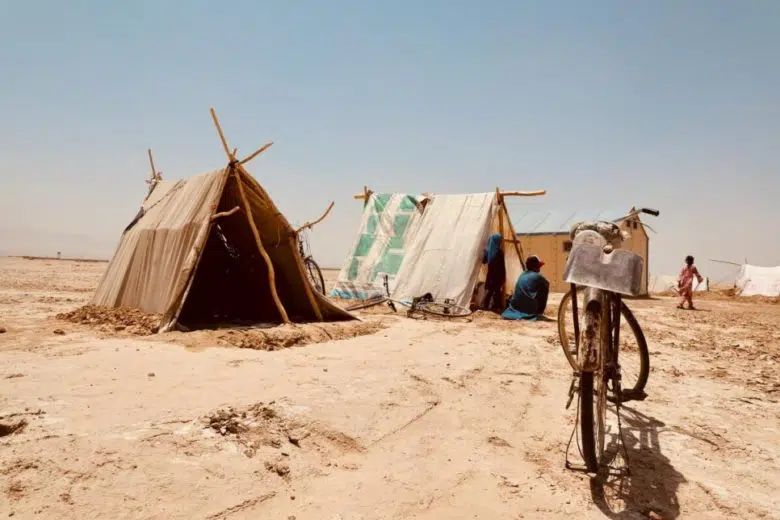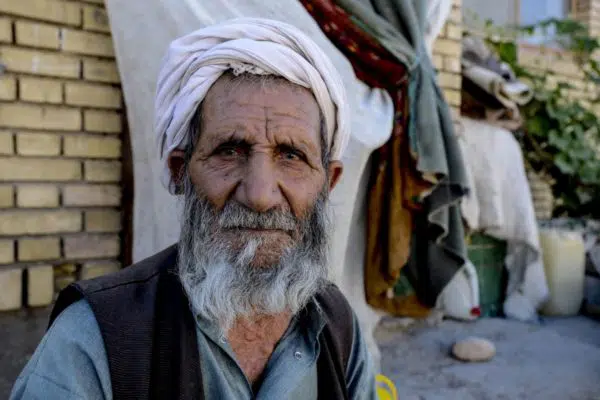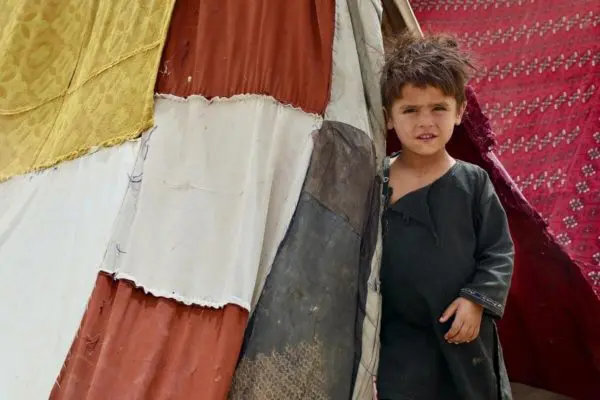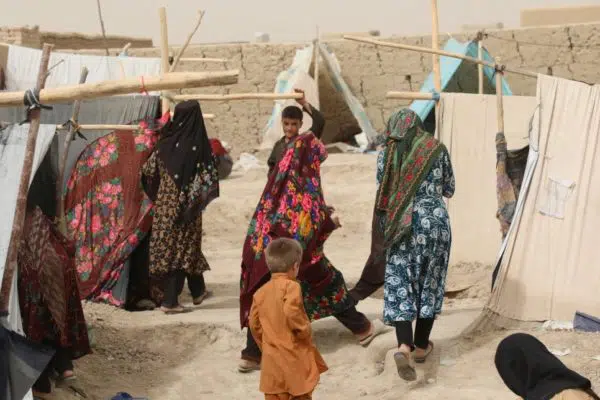
Some half a million Afghans have been internally displaced by violence this year alone. © UNHCR/Edris Lutfi
This is a summary of what was said by UNHCR spokesperson Shabia Mantoo – to whom quoted text may be attributed – at today’s press briefing at the Palais des Nations in Geneva.
UNHCR, the UN Refugee Agency, is concerned about the prevailing humanitarian needs within Afghanistan, and urges support to ensure that all those requiring assistance are not forgotten.
The situation on the ground across the country remains extremely fluid. While widespread fighting has decreased since the takeover of the country by the Taliban on Sunday, the full impact of the evolving situation is not yet clear. Many Afghans are extremely anxious about what the future holds.
Bolstered support for the humanitarian response inside Afghanistan itself is urgently needed to deliver assistance to the Afghan people, including some half a million this year alone. The vast majority of Afghans are not able to leave the country through regular channels. The footage taken a few days ago of crowds at the airport has shocked the world, speaking powerfully to the sense of fear and uncertainty among many Afghans.
UNHCR welcomes the efforts of several states to protect at-risk Afghan nationals through bilateral evacuation programmes. These bilateral evacuation programmes should not, however, overshadow or substitute for an urgent, and wider international humanitarian response.
Nor should these hamper or preclude the possibility for Afghans to seek asylum in other countries. All states – and this applies to countries both within and outside the region –must preserve the right to asylum for Afghans arriving through regular or spontaneous means.
UNHCR is also concerned that many are confusing these bilateral evacuation programmes from Afghanistan with UNHCR’s traditional refugee resettlement, which is completely unrelated. UNHCR does not transfer citizens from their own countries to other states.
In the past week, several states have announced resettlement or evacuation programmes respectively for Afghans at risk. The full details of these initiatives have not yet been announced.
UNHCR remains concerned about the risk of human rights violations against civilians in this evolving context, including women and girls. As of today, those who may be in danger have no clear way out. UNHCR is calling on countries neighbouring Afghanistan to keep their borders open in light of the evolving crisis in Afghanistan.
Some 200 UNHCR colleagues, both national and international, remain on the ground in Afghanistan as of today. We are continuing to work with 18 local non-government partners with some 900 staff throughout the country. At present, we are able to access all provinces, and are working in some two-thirds of all districts. Together with the wider UN country team, we are committed to staying and delivering aid to the Afghan people for as long as we have access to populations in need and can ensure safety for our staff.
Since the beginning of this year, we have provided emergency assistance to 230,000 people, including cash assistance, shelter kits, hygiene support and other essential relief items. Protection monitoring and needs assessments are ongoing for some half a million displaced Afghans, 80 per cent of whom are women and children.
We call on donors to remain steadfast in their support for humanitarian operations in Afghanistan and are also appealing for support. UNHCR’s Supplementary Appeal for the Afghanistan Situation highlights US$62.8 million as urgent needs to support the response for internally displaced people in Afghanistan as well as preparedness in Afghanistan and its neighbouring countries. These requirements are part of the US$351 million requirements for the Afghanistan situation, which remains drastically underfunded at 43 per cent.
For more information on this topic, please contact:
- In Bangkok, Catherine Stubberfield, stubberf@unhcr.org, +66 65 929 8062
- In Geneva, Shabia Mantoo, mantoo@unhcr.org, + 41 79337 7650
- In New York, Kathryn Mahoney, mahoney@unhcr.org, +1 347 443 7646
Originally published by UNHCR on 20 August 2021.





